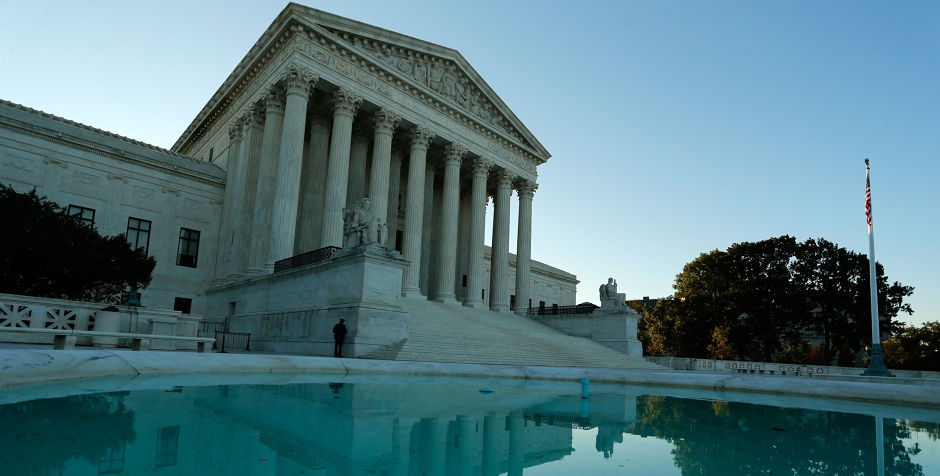ACLJ Helps Little Sisters of the Poor in Challenge Against HHS Mandate
Just over one year ago, the Supreme Court held in the Hobby Lobby decision that the HHS Mandate, a federal regulation requiring non-exempt employers to provide abortion-inducing drugs and services to its employees, violated the religious rights of closely held corporations and their owners. It was a great victory for religious freedom in this country, recognizing that business owners do not lose their religious liberties by virtue of owning and running a business.
With little regard for the Court’s ruling, and motivated by its singular devotion to making abortion-inducing drugs as widely available as possible, the Obama Administration tweaked the Mandate to provide religious nonprofit organizations with a so-called “accommodation” -- not the total exemption that churches have been given. As explained here, the administration’s “accommodation” is no accommodation at all -- just another way for a group to violate its religious conscience.
Numerous religious institutions, colleges, and organizations have challenged the administration’s “accommodation” scheme in courts across the country. And now that several courts of appeal have handed down rulings in support of the government -- and against the right of religious institutions to govern themselves according to their own religious principles -- the time has come to ask the Supreme Court to intervene.
One group that has appealed to the Supreme Court is the Little Sisters of the Poor, a congregation of Catholic nuns founded in 1839 by Saint Jeanne Jugan. The mission of the Little Sisters is “to offer the neediest elderly of every race and religion a home where they will be welcomed as Christ.” The Little Sisters provide food and shelter to the elderly poor in 30 countries, including the United States, where the Sisters have over 25 homes that house the needy. For the Sisters, the Bible’s mandate to “share your bread with the hungry and bring the homeless poor into your house” is not only a religious instruction; it is a way of life.
As a Catholic congregation, the Little Sisters order their lives according to the teachings of Scripture and the Catholic Church. They believe -- firmly so -- that abortion, contraception, and sterilization are wrong. They also believe that to take any affirmative steps that would facilitate others in the use of these procedures or drugs (as the accommodation would require) would make them morally complicit in the wrongdoing of another. Rightly seeing the “accommodation” for what it truly is -- smoke and mirrors -- the Little Sisters cannot comply with it. And this is no mere theological opinion. Failing to comply with the Mandate would come at an enormous cost to the Sisters -- to the tune of millions of dollars.
According to the administration, it doesn’t matter that the Little Sisters believe that they are being compelled to violate their religious beliefs and practices. The administration thinks that because it has created an “accommodation” scheme -- which in the government’s judgment eliminates any religious burdens -- the Little Sisters should have no problem falling in line and complying. In other words, the government believes the Little Sisters are wrong about what violates their own religious beliefs.
This, of course, raises a critical question for the future of religious freedom in this country: who should decide whether a government program forces one to violate one’s religious conscience? The religious adherent or the government? For this administration, the answer is quite clear -- and decidedly wrong.
The ACLJ has filed an amicus brief with the Supreme Court, on behalf of more than 140,000 ACLJ supporters, asking the Court to take the Little Sisters’ case. As we argue in the brief, while courts are empowered to decide questions of law, they have no authority to decide questions of religious belief or moral complicity. It is not -- and never has been-- the role of courts to sit in theological judgment of a religious objector’s understanding of what his religion forbids. As the Supreme Court itself has stated, “Repeatedly and in many different contexts, we have warned that courts must not presume to determine . . . the plausibility of a religious claim.”
Unless the Supreme Court takes up the Little Sisters’ challenge to the Mandate, or agrees to take another one of the many similar cases now pending before the Court, religious freedom in this country will be dealt a hard and significant blow. We are cautiously optimistic, however, that the Court will do the right thing.
The Supreme Court will most likely decide this fall whether it will hear the Little Sisters’ challenge. We will keep you posted.
UPDATE: The lower court in this case, over objections by the Department of Justice, has ordered that the government not enforce the Mandate against the Little Sisters pending the Supreme Court’s consideration of their cert petition.

